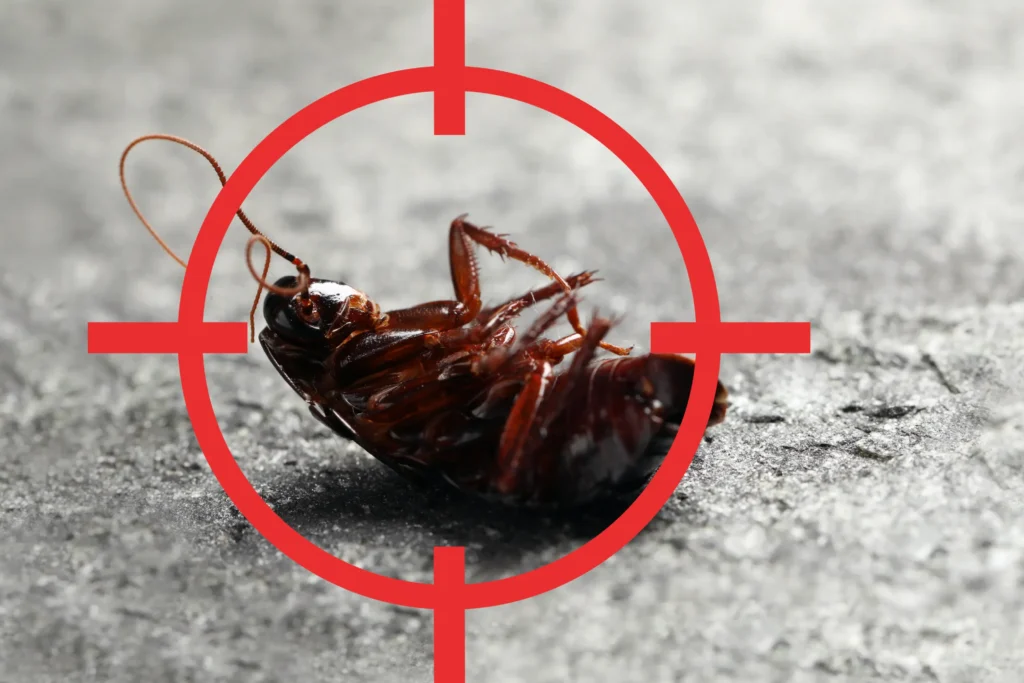Pests indicate a healthy organic garden since even these pesky organisms love to feed on healthy green matter.
In a state where the unique climate supports a diverse plant life like Colorado, pests can give gardening enthusiasts a serious headache.
From disrupting marine ecosystems after being washed downstream by run-off water, contributing to greenhouse gases, destroying soil biodiversity, and causing various health issues, commercial pest control practices and products are not very eco-conscious.
In response to the pressing need for environmental awareness, globally, we are experiencing a paradigm shift toward eco-conscious management of garden pests.
Companion Planting

Let us help you remove the annoying pests.
Companion planting entails integrating food plants with other plants that are not friendly or those that attract insects that repel garden pests. The majority of these plants contain smells that are both unpleasant to pests and pleasant to pest-eating critters. For instance, marigold repels aphids and nematodes while basil helps to deter mosquitoes and flies. Lavender is very beneficial for Colorado gardening since it attracts pollinators such as honeybees and butterflies while at the same time deterring moths and fleas.
Beneficial Insects
Beneficial insects come in handy in gardening by deterring or feeding on garden pests, hence controlling their populations. For instance, ladybugs feed on aphids, mites, and scale insects. Praying mantises target large pests like grasshoppers and beetles while lacewing larvae devour aphids, caterpillars, and thrips.
Natural Predators
Incorporating natural predators is among the most effective natural pest control practices in the diverse plant life that characterizes Colorado landscapes. This entails the introduction of animals that prey on garden critters thereby reducing or eliminating their populations. Animals like birds, frogs, and bats are among the various natural pest predators that can be used. You can do this by installing a birdhouse or bat box just next to the garden and encourage their presence. The best thing about these is that some, like birds, can act as a source of therapy by listening to their soothing chirping and singing.
Handpicking the Pests
Alternatively, you can handpick some larger pests like beetles and caterpillars from the garden as you go on about your garden chores. While this can be a little physically engaging, it is a great opportunity to unwind especially when you are not very tired. It can also improve your surveillance frequency while at the same helping you cultivate a strong love for gardening and sustainable living.
Homemade Insecticide
Homemade insecticides come in handy where other natural pest control practices are not feasible or their application has proven futile. Though often overlooked, homemade insecticides are very beneficial for small pests like aphids. This can be made by mixing natural ingredients like vinegar, lemon, baking soda, and dish soap. Liquid oil is used to increase the viscosity of the solution to make it stay on soft leaves for longer.
Mulching and Ground Covers
Weeds have been known to attract the majority of garden pests. Using organic mulching or ground covers can deter weed growth, maintain healthy rich garden soils, and attract beneficial organisms like earthworms for even healthier plants. Remember to lay the mulch a few inches away from the plant base to avoid rot and mold formation.
Crop Rotation
Another technique that has been widely relied upon by farmers for a long time as a natural pest control practice is crop rotation. This entails changing garden plants each season with the aim of disrupting the life cycle of the pests that thrive in those particular plants. In addition to controlling the pest populations, crop rotation can also help in managing plant diseases thereby increasing your crop production.
Encourage Healthy Soil
Unhealthy soils, provided by intensive commercial pesticides are perfect breeding grounds for pests and diseases. Composting to make organic fertilizers, mulching and natural ground covers, and adequate watering can boost your soil’s health, deterring, and making your plants more resilient to withstand pest invasions.
Neem Oil
Neem oil is a natural insecticide derived from the neem tree. It can effectively control aphids, spider mites, whiteflies, and more. Spraying the oil early in the morning or late in the evening can help prevent plant burns while using neem oil.
While pests are a critical part of the natural ecosystem, they are more of a bother than useful in gardens. With that in mind, our gardening and control practices should aim to get rid of these critters instead of the entire environment. By faithfully following or adhering to the above-discussed practices, we can achieve sustainable gardening in Colorado and produce healthy organic foods for safe human consumption.




